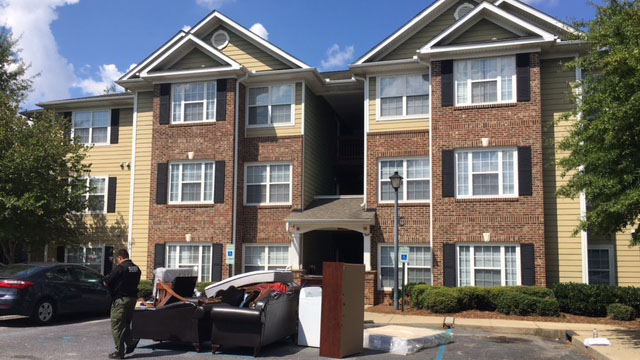PROFESSIONAL TENANTS AND HOW TO AVOID THEM
 Professional tenants are a landlord’s worst nightmare, the ones you read about in the newspaper. These individuals are notorious for cheating the system and using loopholes, leaving landlord’s with lost rental income, a damaged property, and a huge headache. They will complain about the smallest of messes and become the largest hassles.
Professional tenants are a landlord’s worst nightmare, the ones you read about in the newspaper. These individuals are notorious for cheating the system and using loopholes, leaving landlord’s with lost rental income, a damaged property, and a huge headache. They will complain about the smallest of messes and become the largest hassles.
In order to get away with such actions, professional tenants have created some pretty elaborate strategies. Here are the top 5 tactics from professional tenants. If you find your tenant is doing any of the below, then you may have a professional tenant.
Often times, professional tenants will pay only a portion of the rent each month. When a landlord has accepted partial rent one month, then State laws will not allow an eviction for that month. This provides the tenant with more time in the property with overdue rent, and most often, they’ll continue to delay each month. Before the landlord realizes it, the tenant is close to lease expiration with an exorbitant number of past due payments. Don’t accept partial payments and require full amounts on exact dates to avoid these schemes. If a tenant is late, be prepared to start the eviction process right away. Also, never accept partial rent.
#2: PAYING RENT BEFORE THE LATE FEE
Professional tenants understand a landlord is more likely to take legal action for $1,000 of past due rent than for a $50 late fee. These tenants will pay rent before the late fee, claiming the late fee will be paid soon. Guess what? By accepting the rent before the late fee, the landlord is most likely never going to receive the late fee. The landlord becomes emotionally drained as a debt collector and just writes off the late fee.
The lease contract is written to align incentives between the tenant and landlord. A late fee is listed in the contract to set the precedent that rent should not be paid past a certain date. Tenants should not take advantage of the payment terms in the contract. By waiving this fee, a landlord signals that the legally binding contract is “flexible,” and it provides professional tenants with the signal that they may be able to bend other terms in the contract. Don’t become drained emotionally and only accept rent after outstanding late fees are paid.
Cash is impossible to track, making it the preferred medium for professional tenant payments. These tenants will lie about making cash payments or even go as far as faking rent receipts. As a landlord, avoid taking cash payments that foster these types of actions. When a landlord is in the courtroom, they want to show a track record of traceable payments followed by no payments. Keep in mind that in some states, landlords are not allowed to refuse cash. If a tenant insist on paying cash, you must create and BOTH sign a receipt at the time the cash is accepted.
Some tenants will approach their landlord and plead for more time to pay rent. This tactic is usually accompanied by a heart-tugging story of the hardships they are currently battling that prevents them from paying. Unfortunately, it is difficult for a landlord to know the legitimacy of these stories and a tough decision must be made. Allowing for a longer payment period will only make things worse. While it might be emotionally difficult to draw a line, a landlord is not a bank that provides loans. When a tenant is late on rent, they should go to their friends, family, bank, or another source for a personal loan. The relationship between tenants and landlords should be strictly professional and real estate related. If a tenant still cannot pay the rent when it is past due, then the next step is an eviction notice. A landlord may want to consider suggesting to the tenant that if they are late on rent, then they will release the tenant from their lease so the tenant can find a more affordable unit. It may be easier for a landlord in the long run to let a tenant who can’t afford rent to leave then to constantly chase the tenant for rent.
#5: CLAIMING THE RENTAL IS UNINHABITABLE
Professional tenants may try to claim the rental is uninhabitable as a scheme to not pay rent. Typically, their process is submitting a maintenance request and claiming it was never addressed. They will withhold rent or break the lease and reference the clause on maintenance and habitability of the property. Every maintenance request should be tracked in a system, providing evidence that the request has been acknowledged and updates have been provided in a timely manner. This type of documentation will save a landlord in the courtroom. While landlords have no power over the judge, maintaining records and photos of your properties can protect yourself from these situations.
When a tenant makes a claim that the property is unfit to live in, landlords must refile with proof of a habitable environment. Tenants will then proceed to trash the property in an attempt to justify their claim. Keeping a running log of property conditions and pictures help prove your case, do not forget that tenant damage, beyond normal wear and tear, can be charged back to the tenant. If they are intentionally causing damage to create an “uninhabitable claim,” documentation will help to bring justice in the case.
Find out more on NationalEvictions.com
for Landlords and Tenants, Learn about Evictions, Find Companies ready to help with Evictions, more………
Tags:
Alabama Eviction Articles,
Alaska Eviction Articles,
Arizona Eviction Articles,
Arkansas Eviction Articles,
California Eviction Articles,
Colorado Eviction Articles,
Connecticut Eviction Articles,
Delaware Eviction Articles,
Eviction Information,
Florida Eviction Articles,
Georgia Eviction Articles,
Hawaii Eviction Articles,
Idaho Eviction Articles,
Illinois Eviction Articles,
Indiana Eviction Articles,
Iowa Eviction Articles,
Kansas Eviction Articles,
Kentucky Eviction Articles,
Landlord Information,
Louisiana Eviction Articles,
Maine Eviction Articles,
Maryland Eviction Articles,
Massachusetts Eviction Articles,
Michigan Eviction Articles,
Minnesota Eviction Articles,
Mississippi Eviction Articles,
Missouri Eviction Articles,
Montana Eviction Articles,
Nebraska Eviction Articles,
Nevada Eviction Articles,
New Hampshire Eviction Articles,
New Jersey Eviction Articles,
New Mexico Eviction Articles,
New York Eviction Articles,
North Carolina Eviction Articles,
North Dakota Eviction Articles,
Ohio Eviction Articles,
Oklahoma Eviction Articles,
Oregon Eviction Articles,
Pennsylvania Eviction Articles,
Rhode Island Eviction Articles,
South Carolina Eviction Articles,
South Dakota Eviction Articles,
Tennessee Eviction Articles,
Texas Eviction Articles,
Utah Eviction Articles,
Vermont Eviction Articles,
Virginia Eviction Articles,
Washington Eviction Articles,
West Virginia Eviction Articles,
Wisconsin Eviction Articles,
Wyoming Eviction Articles
 Professional tenants are a landlord’s worst nightmare, the ones you read about in the newspaper. These individuals are notorious for cheating the system and using loopholes, leaving landlord’s with lost rental income, a damaged property, and a huge headache. They will complain about the smallest of messes and become the largest hassles.
Professional tenants are a landlord’s worst nightmare, the ones you read about in the newspaper. These individuals are notorious for cheating the system and using loopholes, leaving landlord’s with lost rental income, a damaged property, and a huge headache. They will complain about the smallest of messes and become the largest hassles.













